Throughout the year National Parks Traveler generated a podcast every week. Topics ranged from discussing management issues involving the National Park System and wildlife in the parks to the high heat that bakes Death Valley National Park. With 52 podcasts to consider, it can be tricky to pick your top five or 10. With that said, here are some of our favorites:
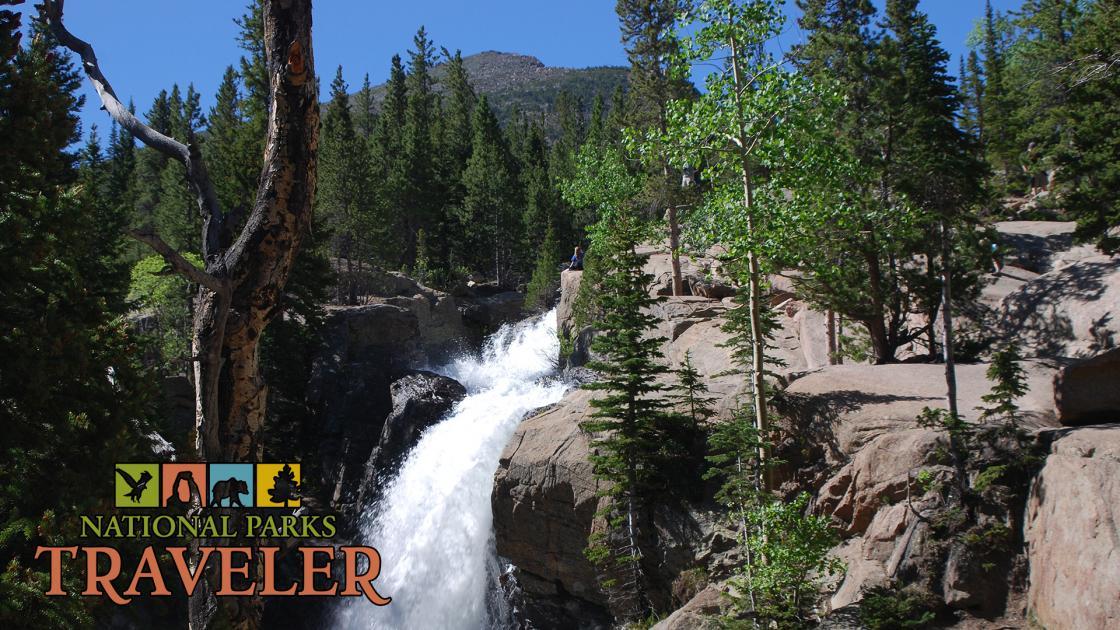
Capturing The Sounds Of Nature In National Parks
Traveler's Lynn Riddick sat down with Dr. Jacob Job to discuss his work recording sounds of nature from around the National Park System.
As you can imagine, national parks offer a variety of treasures: spectacular views, scenic trails and waterways and vast ecosystems of plants and wildlife. And what would these things be without accompanying soundscapes -- wind howling through a canyon on a scorching afternoon… or the “wall-of-sound” created by insects as soon as the sun sets… or birds singing so loudly outside your tent, they wake you up before you really wanted to wake up.

Yosemite Turns Into Assateague, And Species Extinction
What can turn a five-day trip to Yosemite National Park into a one-day trip to Assateague Island National Seashore? Covid can. In this lighthearted and informative story of their trip to the beach, Lynn Riddick and her friend Michele Hogan demonstrate that it’s all about flexibility when trying to find some outdoor space in the age of a global pandemic.
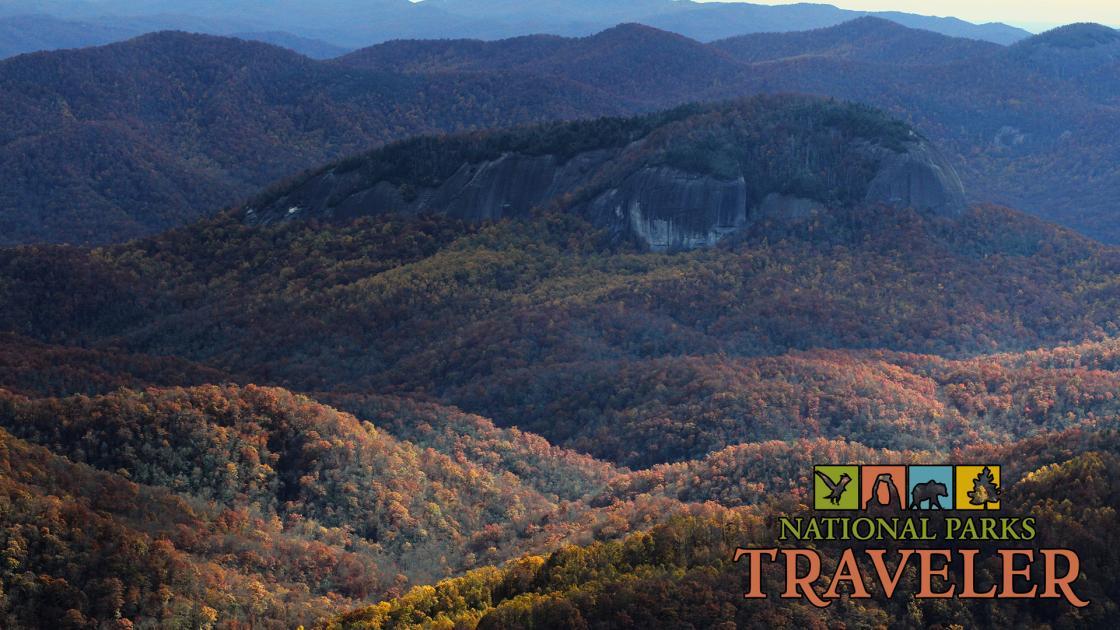
Visiting The Blue Ridge Music Center
This show looked at a national park site that celebrates distinctly American music -- the Blue Ridge Music Center along the Blue Ridge Parkway near Galax, Virginia. Lynn Riddick visited with Richard Emmett, director of the Blue Ridge Music Center, to find out what’s happening in the interpretation, presentation, and promotion of traditional American mountain music.
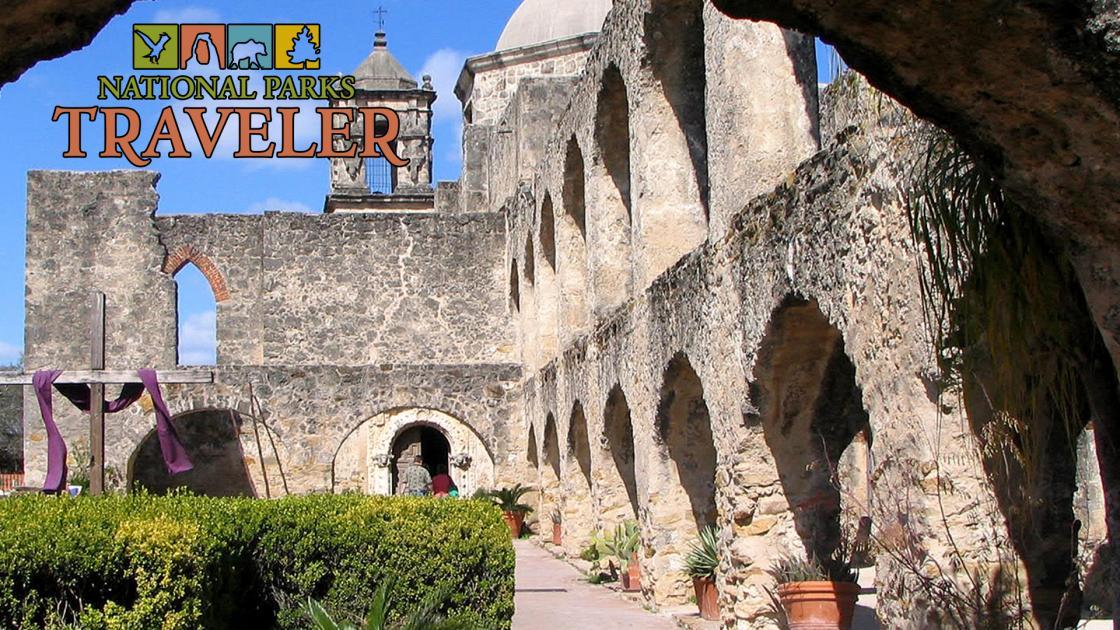
Mission San Jose
This was actually one segment of a four-part series Lynn Riddick did on the four missions of San Antonio Missions National Historical Park. She was able to visit Mission San Jose and discuss the history of the missions, the populations they served, and how they thrived, with National Park Service Ranger Tom Castanos, who is the educational coordinator at the park.
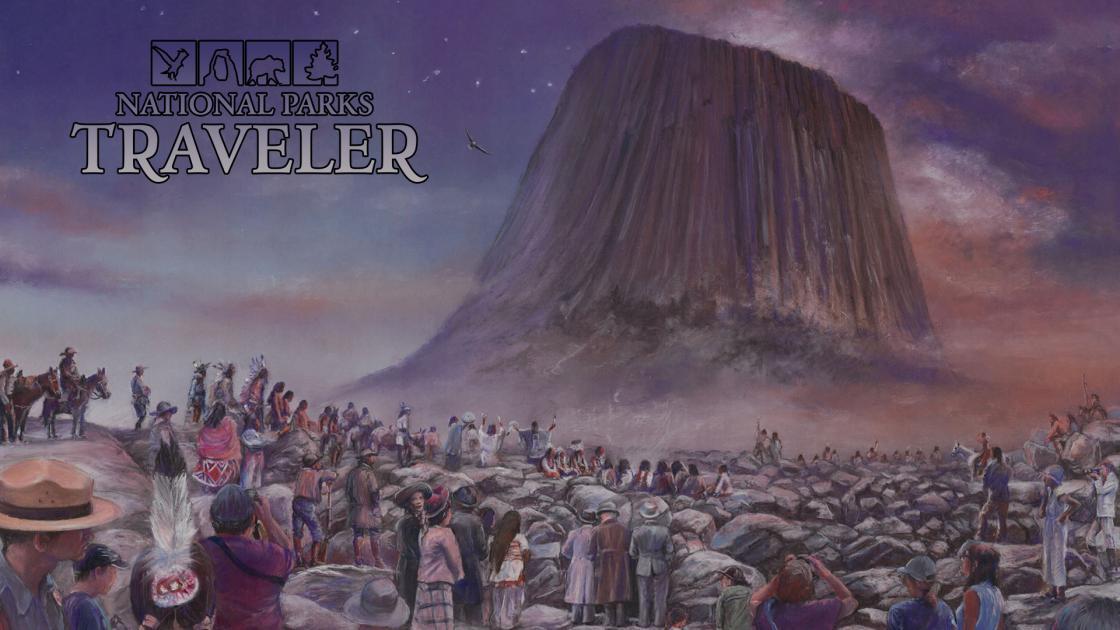
Artistic Interpretation
Who makes those colorful interpretive panels found in the National Park System? One person is Steve Patricia. He’s an independent artist and content specialist who provides illustrations and diagrams for waysides, exhibits, and murals at national parks, monuments, and historic sites all over the country. From depicting the Spanish stronghold at Castillo de San Marcos National Monument in St. Augustine, Florida, to Aztec Ruins National Monument in New Mexico, Patricia’s work is part of a larger effort to connect visitors to the landscapes and resources they see in front of them. From his home in the Laurel Highlands of southwestern Pennsylvania, he shares some insights with Lynn Riddick.
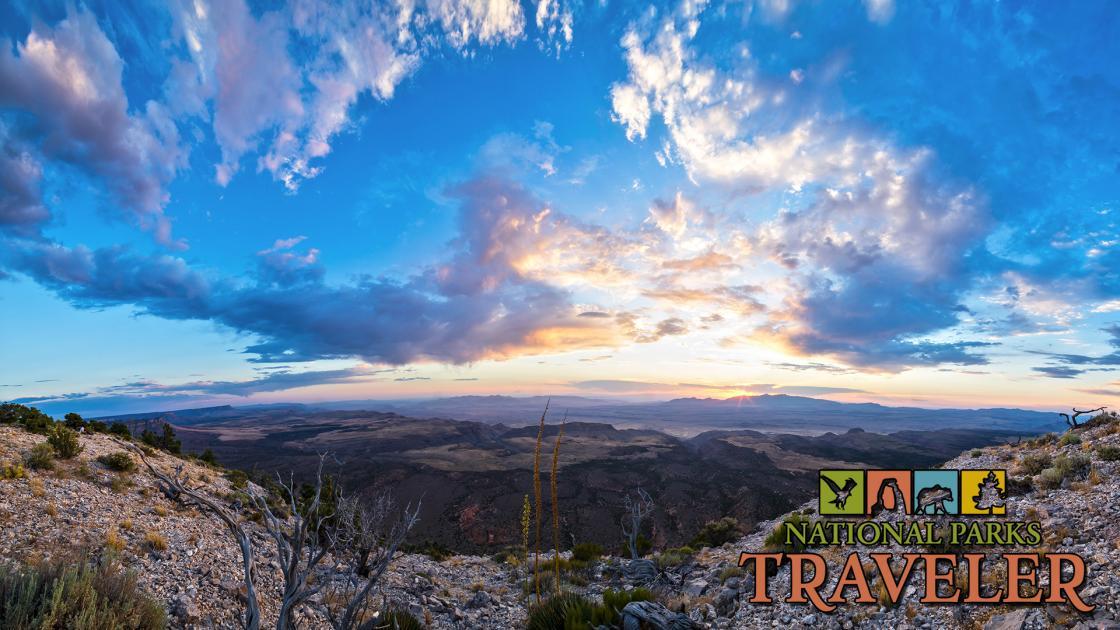
Put Parashant NM On The Bucket List
In this show we dreamt a little bit about places in the National Park System we’d like to visit with hopes we can help you discover a new park destination. To launch this audio bucket list, we looked towards Arizona and Parashant National Monument, which despite its more than 1 million acres seems to fly below most park visitors’ radar. Kurt Repanshek discussed the monument with Jeff Axel, the park's chief of interpretation.
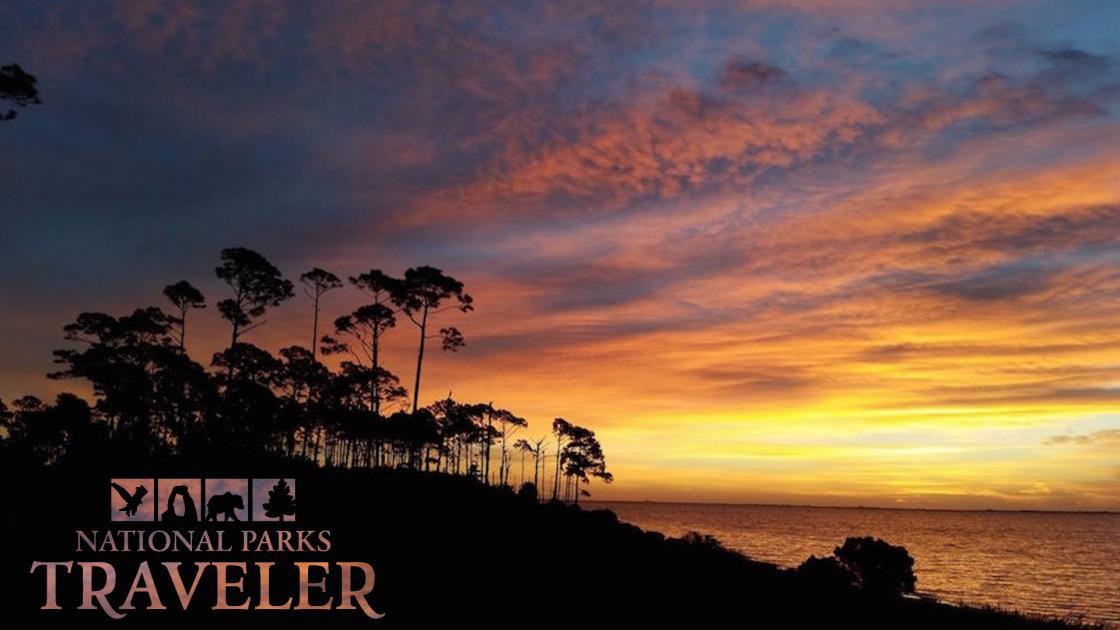
Crab Island Party At Gulf Islands National Seashore
There are many issues that confront the national parks and the National Park Service. Overcrowding is one that not only stresses park staff, but also natural resources that parks are supposed to protect. Overcrowding at Gulf Islands National Seashore in Florida is a bit more unusual than many others. You might have heard about Crab Island, Florida. It’s a lively spot within the national seashore that attracts throngs of partiers, personal watercraft, and businesses that sell everything from frozen bananas to hot boiled peanuts.
What’s wrong with that? Well, not only are there fatalities associated with this partying, but this "island" really is just a submerged sand bar, and it serves as a vital nursery area for Gulf of Mexico fisheries and has been identified as a critical resource in the national seashore. Lynn Riddick reached out to Gulf Islands Superintendent Dan Brown to discuss the early stages of strategy development, including the collection of public input from various commercial stakeholders.
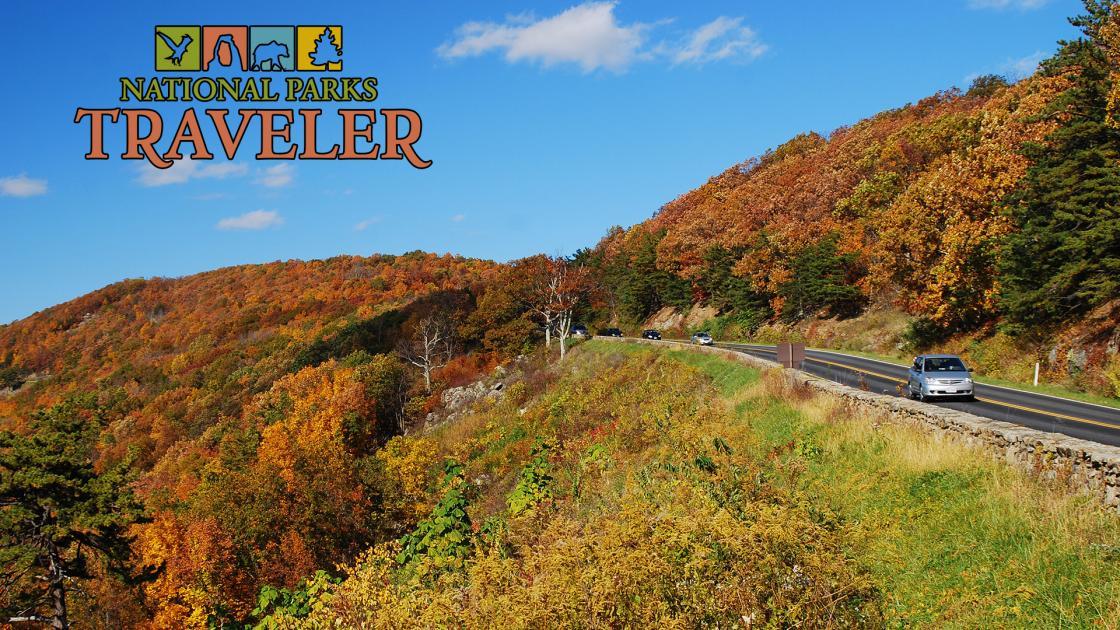
Fall Lodging In The Parks
We welcomed you to fall with a conversation with lodging experts David and Kay Scott on where best to relax and enjoy the fall foliage in the National Park System. The Scotts should know. They're the authors of The Complete Guide To The National Park Lodges.
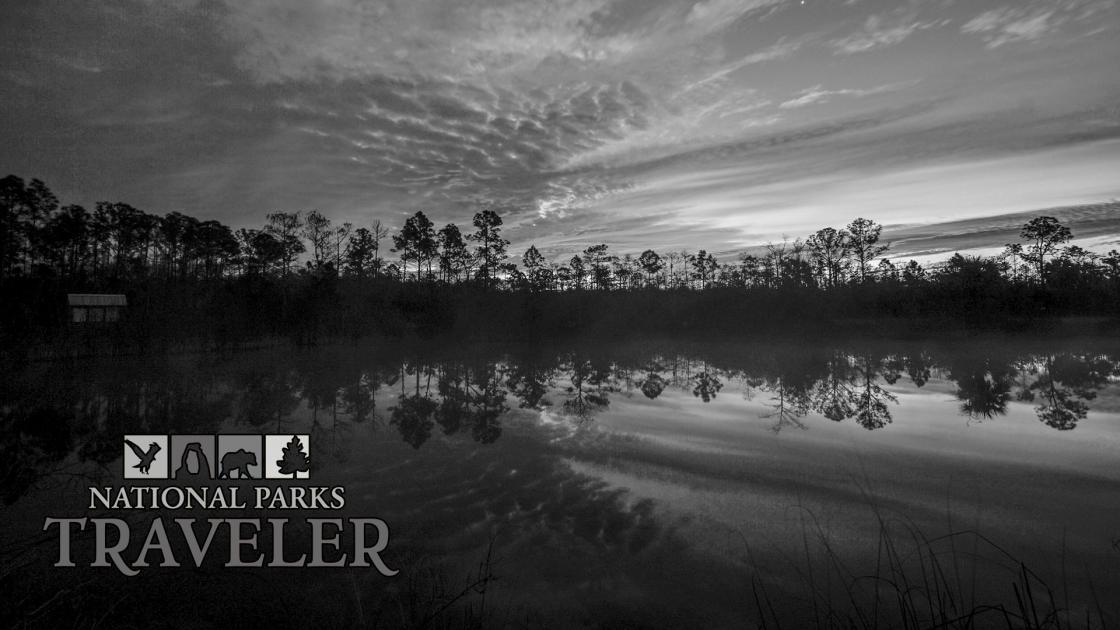
A Conversation With Photographer Clyde Butcher
“Good photography is about creating a feeling of things, rather than a picture of things.” That’s the philosophy of our guest, Clyde Butcher, acclaimed photographer and environmentalist. You might be familiar with his iconic black-and-white large format landscape photos that often are part of larger efforts to protect fragile ecosystems that he knows so well. And as Lynn Riddick found out in her conversation with Butcher from his home in Venice, Florida, he doesn’t mind wading chest-deep through a cypress swamp or facing off against a hoofed animal to show why a place is worth protecting.
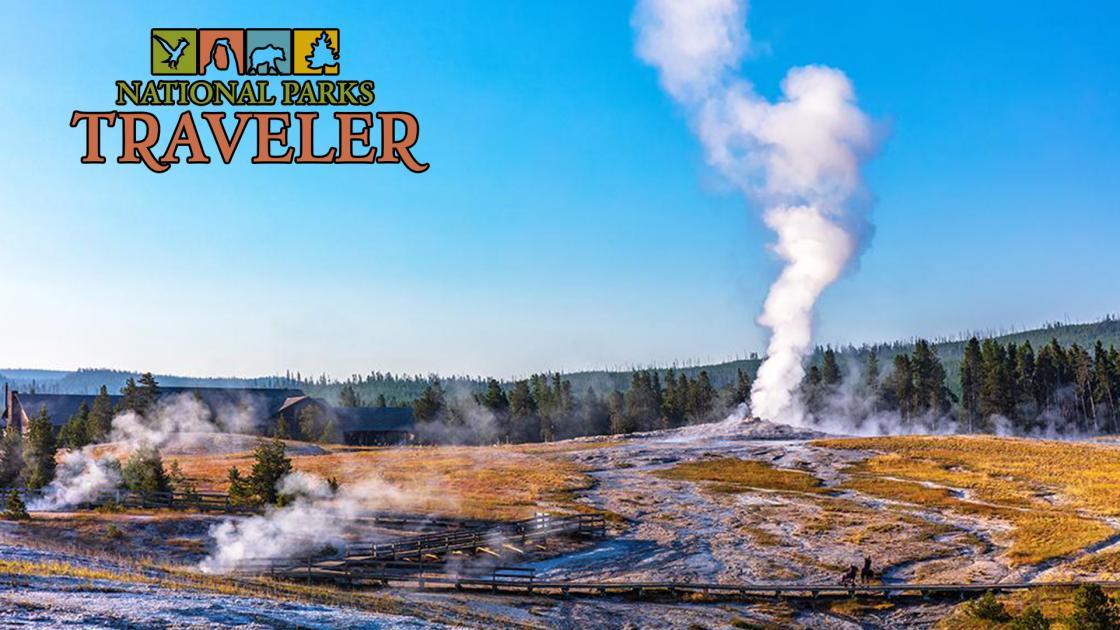
The Yellowstone Volcano Observatory
There's always a lot of shaking, rattling, and occasional rolling going on in Yellowstone National Park. Keeping track of it is the Yellowstone Volcano Observatory, one of five such observatories under the purview of the U.S. Geological Survey. It keeps real-time tabs on volcanic, hydrothermal and earthquake activity in the Yellowstone Plateau volcanic field.
Lynn Riddick spoke with the scientist-in-charge of the observatory, Michael Poland, Ph.D. From his home in Vancouver, Washington, Poland provided a glimpse into the latest monitoring systems in Yellowstone National Park and the park’s recent geologic activity.
Those are just ten of 52 episodes. Looking ahead to 2021, we'll be discussing search-and-rescue in the National Park System, talking to superintendents about the uniqueness of their parks, and working to keep you informed on the health of the park system.

 Support Essential Coverage of Essential Places
Support Essential Coverage of Essential Places







Comments
I have expressed and hereby reiterate my concerns regarding National Park Service's (NPS) actions taken toward reducing funding for the Sea Turtle Science Program at Padre Island National Seashore, Texas, and National Park Service's negative actions toward Dr. Donna Shaver who has supervised the research and conservation efforts directed the endangered Kemp's ridley sea turtles and other sea turtle species covered by this program. NPS has not responded to the complaint submitted by PEER which challenged thes detrimental actions of NPS.